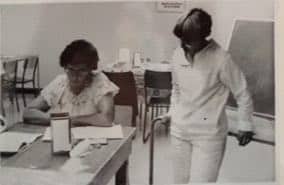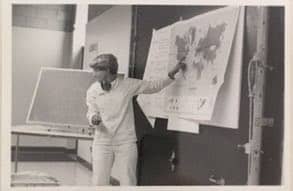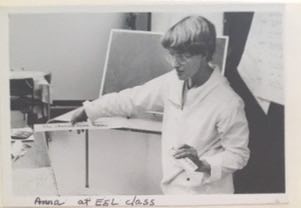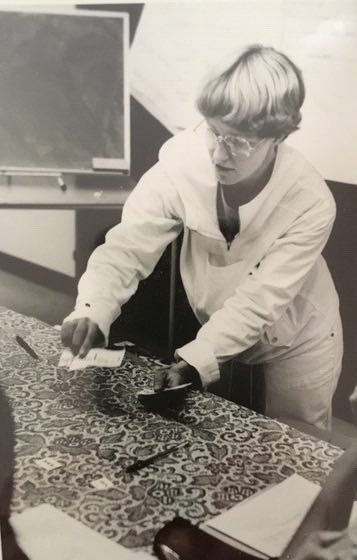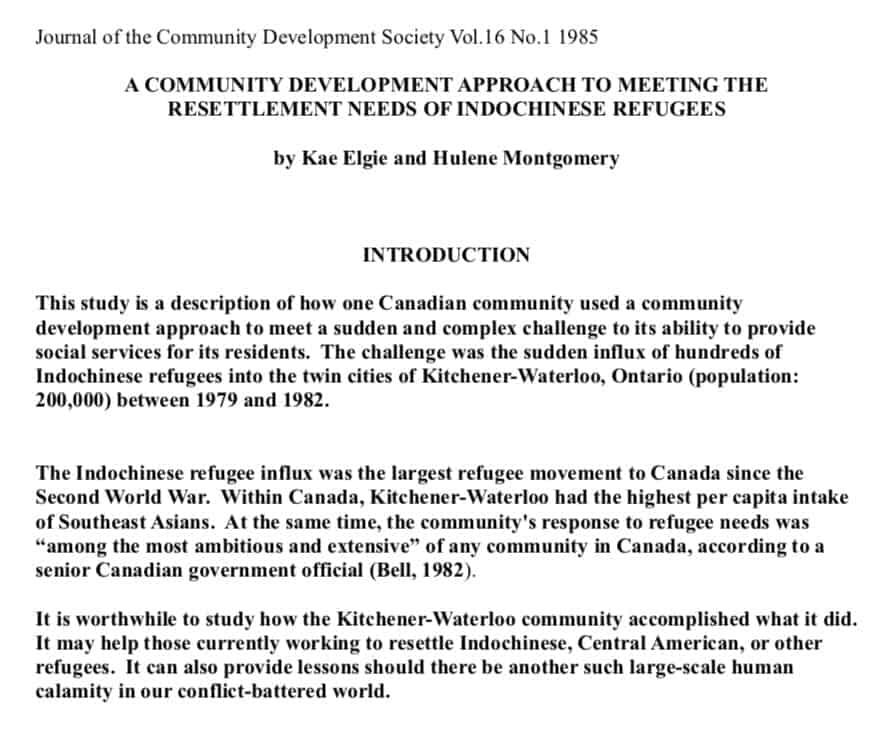HOF088: Hulene Montgomery / Anna Hemmendinger
Anna Hemmendinger
I was born to scientists in Los Alamos, New Mexico. As a nuclear physicist, my father had been a member of the team that built the first nuclear bomb dropped on Hiroshima, in 1945. This is the context that has shaped my stance in the world in wanting to create opportunities for peace.
“Making Peace” is a complex process that we can only accomplish by crossing cultural, racial, faith boundaries to understand and reach out to our neighbours. When refugees began arriving in my community, it became an opportunity for me to begin to build bridges that others had failed to build by 1945.
Teaching English as a Second Language provided an opportunity to improve others’ lives and it also challenged me to open my mind and heart to others on a daily basis. After volunteering as an ESL teacher, I started an innovative program to offer English in workplace settings through an organization called English in the Working Environment, funded by the Ministry of Citizenship and Culture and Secretary of State. Later, I worked for three years for Mennonite Central Committee as Refugee Concerns Coordinator from 1988-1991
My involvement with working with refugees was informed in three ways. My faith as a Quaker grounded me and inspired me to look for that of God in each person I encounter. My exposure in the early 1980s to the radical pedagogue Paulo Freire expanded my creativity incorporating daily language and problem solving in my curriculum as an ESL Teacher. And finally, a local organization called the Global Community Centre provided a community forum and outreach that expanded my knowledge of world political events causing the exodus of refugees.
Every intercultural encounter has been an opportunity to learn, to grow, to expand my heart. After finishing my contract with English in the Working Environment, I went on to study theology and pastoral counselling that I utilized first, as a Mennonite Pastor for seven years, then as a Psychotherapist for twenty-five years, until my recent retirement.
Hulene Montgomery
From November 1979 to October 1982 Hulene Montgomery worked as a Refugee Liaison Officer with Canada Employment and Immigration in Kitchener Waterloo.
Working collaboratively with a coalition of church, community and government partners, the Kitchener Waterloo community developed a community development approach to resettlement involving the mobilization of a broad cross section of agencies and services.
Several innovative approaches were introduced including a Mental Health Network in which social workers worked together with recent refugees who had been trained as cultural interpreters and a extensive education program. The Refugee Experience Kit, a resource to assist elementary school children in grades 4-8 to understand the refugee experience globally and locally was widely utilized by both Boards of Education. To respond to the unique needs of the Hmong refugees, special language and resettlement programs were developed.
In 1982 Hulene received a George Drew Fellowship Travel Scholarship to work in Zimbabwe sharing her experience of how schools and educational institutions in Canada were adapting to an ever increasing multicultural population.
From 1983 to 2003 Hulene continued to work in local and international development as she served in various leaderships working with CUSO Botswana, Mennonite Central Committee West Africa, the Anglican Church of Canada’s Primate’s World Relief and Development Fund, United Way and the YWCA of KW. Hulene retired in in 2011 from the Lyle S Hallman Foundation where she served as the inaugural Executive Director.
Hulene volunteers in her community and she supports agencies working with refugees locally and internationally.
